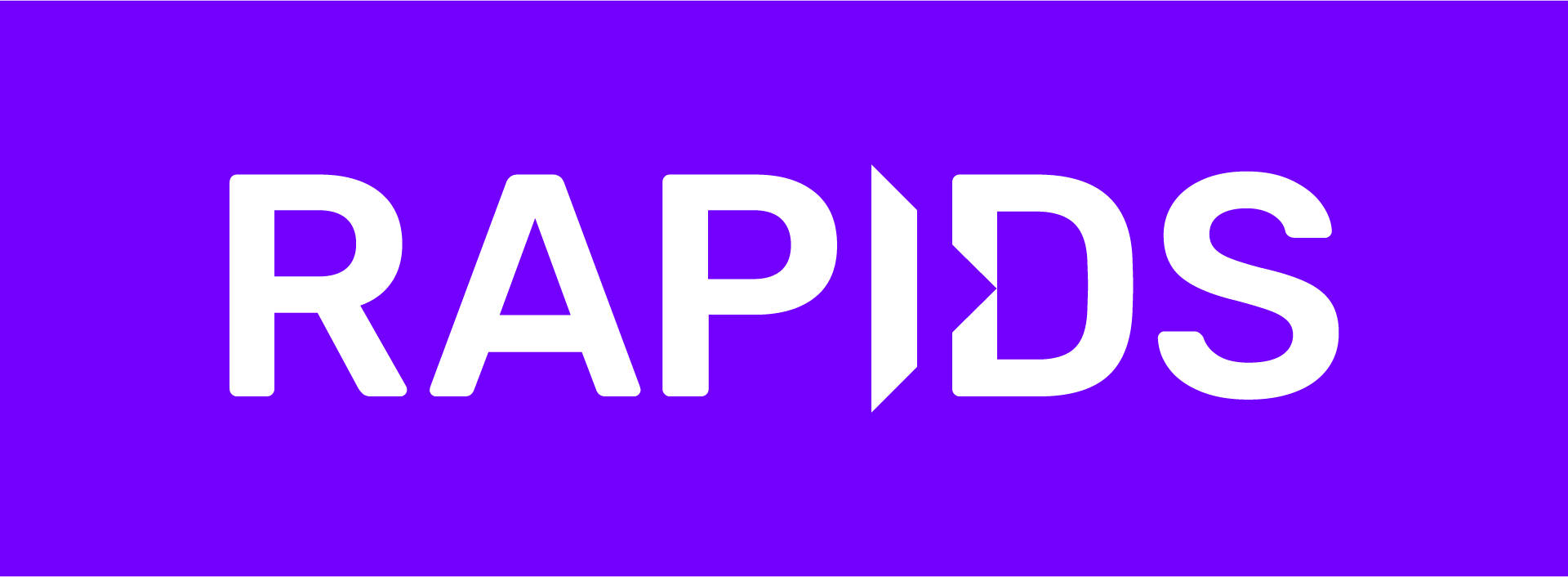RAFT contains fundamental widely-used algorithms and primitives for data science, graph and machine learning. The algorithms are CUDA-accelerated and form building-blocks for rapidly composing analytics in the RAPIDS ecosystem.
By taking a primitives-based approach to algorithm development, RAFT
- accelerates algorithm construction time
- reduces the maintenance burden by maximizing reuse across projects, and
- centralizes the core computations, allowing future optimizations to benefit all algorithms that use them.
The algorithms in RAFT span the following general categories:
| Category | Examples |
|---|---|
| Data Formats | sparse & dense, conversions, data generation |
| Data Generation | sparse, spatial, machine learning datasets |
| Dense Linear Algebra | matrix arithmetic, norms, factorization, least squares, svd & eigenvalue problems |
| Spatial | pairwise distances, nearest neighbors, neighborhood graph construction |
| Sparse Operations | linear algebra, eigenvalue problems, slicing, symmetrization, labeling |
| Basic Clustering | spectral clustering, hierarchical clustering, k-means |
| Optimization | combinatorial optimization, iterative solvers |
| Statistics | sampling, moments and summary statistics, metrics |
| Distributed Tools | multi-node multi-gpu infrastructure |
RAFT provides a header-only C++ library and pre-compiled shared libraries that can 1) speed up compile times and 2) enable the APIs to be used without CUDA-enabled compilers.
RAFT also provides a Python library that is currently limited to
- a python wrapper around the
raft::handle_tfor managing cuda library resources - definitions for using
raft::handle_tdirectly in cython - tools for building multi-node multi-GPU algorithms that leverage Dask
The Python API is being improved to wrap the algorithms and primitives from the categories above.
RAFT relies heavily on RMM which, like other projects in the RAPIDS ecosystem, eases the burden of configuring different allocation strategies globally across the libraries that use it. RMM also provides RAII) wrappers around device arrays that handle the allocation and cleanup.
Most of the primitives in RAFT accept a raft::handle_t object for the management of resources which are expensive to create, such CUDA streams, stream pools, and handles to other CUDA libraries like cublas and cusolver.
The example below demonstrates creating a RAFT handle and using it with RMM's device_uvector to allocate memory on device and compute
pairwise Euclidean distances:
#include <raft/handle.hpp>
#include <raft/distance/distance.hpp>
#include <rmm/device_uvector.hpp>
raft::handle_t handle;
int n_samples = ...;
int n_features = ...;
rmm::device_uvector<float> input(n_samples * n_features, handle.get_stream());
rmm::device_uvector<float> output(n_samples * n_samples, handle.get_stream());
// ... Populate feature matrix ...
auto metric = raft::distance::DistanceType::L2SqrtExpanded;
rmm::device_uvector<char> workspace(0, handle.get_stream());
raft::distance::pairwise_distance(handle, input.data(), input.data(),
output.data(),
n_samples, n_samples, n_features,
workspace.data(), metric);RAFT can be installed through conda, cmake-package-manager (cpm), or by building the repository from source.
The easiest way to install RAFT is through conda and several packages are provided.
libraft-headerscontains all the CUDA/C++ headerslibraft-nn(optional) contains precompiled shared libraries for the nearest neighbors algorithms. If FAISS is not already installed in your environment, this will need to be installed to use the nearest neighbors headers.libraft-distance(optional) contains shared libraries for distance algorithms.pyraft(optional) contains the Python library
To install RAFT with conda (change to rapidsai-nightly for more up-to-date but less stable nightly packages)
conda install -c rapidsai libraft-headers libraft-nn libraft-distance pyraftAfter installing RAFT, find_package(raft COMPONENTS nn distance) can be used in your CUDA/C++ build. Note that the COMPONENTS are optional and will depend on the packages installed.
RAFT uses the RAPIDS cmake library, which makes it simple to include in downstream cmake projects. RAPIDS cmake provides a convenience layer around the Cmake Package Manager (CPM).
After installing rapids-cmake in your project, you can begin using RAFT by placing the code snippet below in a file named get_raft.cmake and including it in your cmake build with include(get_raft.cmake). This will create the raft::raft target to add to configure the link libraries for your artifacts.
set(RAFT_VERSION "22.04")
function(find_and_configure_raft)
set(oneValueArgs VERSION FORK PINNED_TAG USE_FAISS_STATIC
COMPILE_LIBRARIES ENABLE_NN_DEPENDENCIES)
cmake_parse_arguments(PKG "${options}" "${oneValueArgs}"
"${multiValueArgs}" ${ARGN} )
#-----------------------------------------------------
# Invoke CPM find_package()
#-----------------------------------------------------
rapids_cpm_find(raft ${PKG_VERSION}
GLOBAL_TARGETS raft::raft
BUILD_EXPORT_SET proj-exports
INSTALL_EXPORT_SET proj-exports
CPM_ARGS
GIT_REPOSITORY https://github.com/${PKG_FORK}/raft.git
GIT_TAG ${PKG_PINNED_TAG}
SOURCE_SUBDIR cpp
OPTIONS
"BUILD_TESTS OFF"
"RAFT_ENABLE_NN_DEPENDENCIES ${PKG_ENABLE_NN_DEPENDENCIES}"
"RAFT_USE_FAISS_STATIC ${PKG_USE_FAISS_STATIC}"
"RAFT_COMPILE_LIBRARIES ${PKG_COMPILE_LIBRARIES}"
)
endfunction()
# Change pinned tag here to test a commit in CI
# To use a different RAFT locally, set the CMake variable
# CPM_raft_SOURCE=/path/to/local/raft
find_and_configure_raft(VERSION ${RAFT_VERSION}.00
FORK rapidsai
PINNED_TAG branch-${RAFT_VERSION}
COMPILE_LIBRARIES NO
ENABLE_NN_DEPENDENCIES NO
USE_FAISS_STATIC NO
)The easiest way to build RAFT from source is to use the build.sh script at the root of the repository,
- create an environment with the RAFT dependencies:
conda env create --name raft_dev -f conda/environments/raft_dev_cuda11.5.yml - run the build script from the repository root:
./build.sh pyraft libraft --compile-libs
The Build instructions contain more details on building RAFT from source and including it in downstream projects. You can also find a more comprehensive version of the above CPM code snippet the Building RAFT C++ from source guide.
The folder structure mirrors other RAPIDS repos (cuDF, cuML, cuGraph...), with the following folders:
ci: Scripts for running CI in PRsconda: Conda recipes and development conda environmentscpp: Source code for all C++ code.docs: Doxygen configurationinclude: The C++ API is fully-contained heresrc: Compiled template specializations for the shared libraries
docs: Source code and scripts for building library documentation (doxygen + pydocs)python: Source code for all Python source code.
If you are interested in contributing to the RAFT project, please read our Contributing guidelines. Refer to the Developer Guide for details on the developer guidelines, workflows, and principals.
